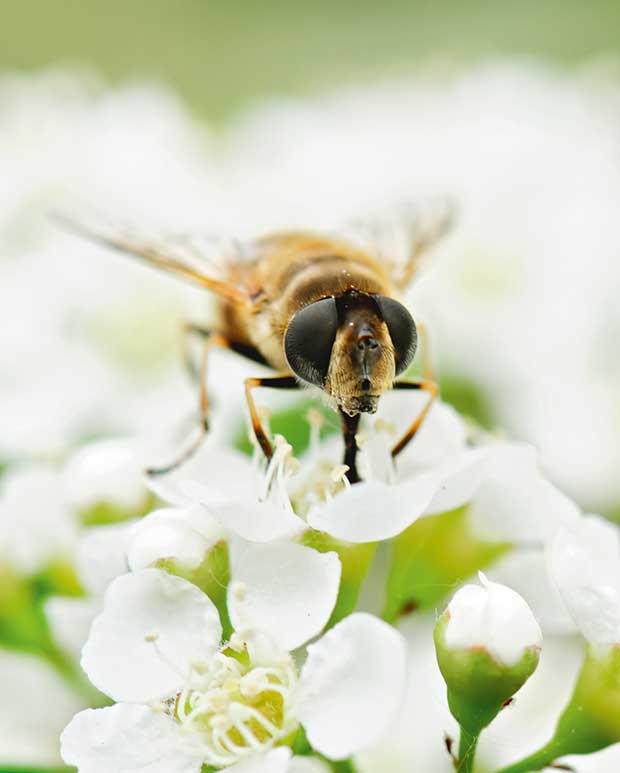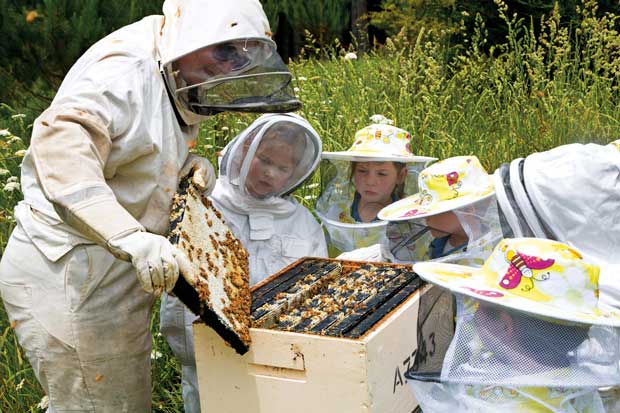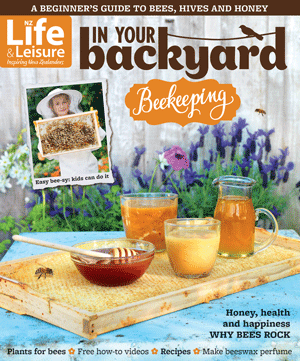3 things to do before getting bees

Don’t bee ill-prepared for these powerful pollinators.
Words: Lucy Tasker
There are are many reasons why people get involved in beekeeping.
Talk to my beekeeping colleagues and you’ll find Rob, who will tell you he got into it because he liked the idea of producing his own honey. Tania loves that she’s always learning, and she finds it amazing that such a little creature can do so many wonderful things.
Beekeeping can be hugely rewarding. It can also be hard work. It takes time and energy to keep bees happy. Here are some things you need to know before you make the decision to care for your own hives.
1. Find your local club
The first important step is to meet some bees and gain some practical experience. You can do that through a local beekeeping club, a course, or by meeting up with a friendly local beekeeper.
A club is a great place to learn, explore, and start your beekeeping endeavours without the commitment. Most clubs hold regular meetings. They will discuss issues and run practical sessions to help educate new and old beekeepers. This can be a good place to find a mentor.
2. Take a course
Beekeeping courses are another excellent option. There are various courses available for beginners. Google to find one close to you.

3. Get the good book
Practical Beekeeping in New Zealand by Andrew Matheson and Murray Reid is a must-have. It will give you an overview of all aspects of beekeeping, covering everything from how to handle bees to extracting and processing honey.
The internet can be a great resource, but it’s important to get information from good sources.
THE BIGGEST REASON WHY PEOPLE DON’T GET INTO BEES
Many people are keen to get into beekeeping but don’t because of their fear of being stung.
Over time, you can develop a resistance to bee venom which means your body won’t become as inflamed when you get stung. However, you won’t avoid the initial pain of a bee sting.
If you’re calm and confident when approaching bees, take your time, and try not to squash any of them, bees are generally placid, gentle creatures.
They don’t want to sting you.
When you’re nervous, you release pheromones that bees can detect. Wearing a full protective suit with hood, thick gloves and boots will limit the amount of skin available for stinging.
You’ll also learn bees have bad days. For example, they can be more agitated when it’s hot and humid.
That may mean you wait for better weather, or you take steps to manage them, for example by using a smoker.
In Your Backyard: Beekeeping is packed with useful beekeeping tips and tricks. This special edition of NZ Life & Leisure includes everything a beginner beekeeper needs to know about honey, hives and harvest. It’s easybeesy with this beautiful and inspirational magazine full of detailed, step-by-step information and video tutorials.
MORE HERE:
Love this story? Subscribe now!
 This article first appeared in NZ Lifestyle Block Magazine.
This article first appeared in NZ Lifestyle Block Magazine.

